One of the most enduring aspects of refugee life is waiting. Waiting for news from home, or for the next delivery of food and water, for the medical clinic to open, or, most simply, whatever happens next in an existence where few have any control over their lives. Some 14,000 Syrian refugees in Greece have been waiting for more than a year to be relocated to other parts of Europe as part of an E.U. plan to redistribute the tens of thousands of asylum seekers that flooded into Greece in the wake of the Middle East’s devastating conflicts.
Since September, TIME has been charting the path of three of those Syrian families seeking sanctuary in Europe as part of the yearlong Finding Home project, starting with the birth of their children in the bleak refugee camps of northern Greece (watch the trailer here). The families have since been moved from the camps to temporary, but more comfortable, housing in hotels and apartments, but they are still waiting for the next chapter of their lives to begin. “I have been waiting for a year and two months,” says Minhel Alsaleh, a father of five from Deir ez-Zor. “I am exhausted by so much waiting. And we still don’t know where we will go. What is it all for?” Here, a short update on the three Finding Home babies and their families:
Faraj
For a brief moment Minhel and his wife Illham Alarabi thought they would be settled in Lithuania. It wasn’t their first choice, but at least it offered a direction and an end point. They were looking forward to putting their four older sons, ranging in age from two to seven, in school and day care so that Illham would have more time to tend to infant Faraj. Born on Oct. 2, he is already reaching the important baby milestones, like sitting up and rolling over.
The only thing standing between Greece and their new life was a security interview at the embassy in Athens. The interview was grueling, says Illham. They asked her if she was a militant. “I found this to be a very silly question. How would I go fight when I have children?” she says she responded. A few weeks later they learned they had been denied entry, due to unspecified security concerns. There is no chance for appeal. “It’s a big shock,” says Illham, still reeling from the news. “I have headaches. My teeth, my eyes, my whole body is hurting me.”
Now they have to wait again, for at least a month, until they can apply for asylum in Greece. “If I had known this was going to happen, we would have just decided to stay in Greece,” says Minhel. “If we had put these kids in school from the beginning, they would at least be reading Greek by now,” says Illham. Instead, her oldest son, Wael, who is seven, struggles to write even basic letters in Arabic. He has never been to school.
Rahaf
Nourelhuda Altallaa and Yousef Alarsan have had an easier time than Minhel and Illham adapting to the wait, despite the fact that unlike most of their friends, they still have no inkling of where they might be placed. Their five-month-old daughter, Rahaf, is flourishing now that the family has been placed in a warm, sun-filled apartment in the suburbs of Thessaloniki. She too is rolling over, and she said her first word, “Mama,” on Mother’s Day. Several other refugee families live in the neighborhood, and both Nourelhuda and Yousef have been able to make friends. They have stopped speculating about where in Europe they will end up. Many refugees argue over which country is best for relocation, based on how welcoming those countries are for migrants, and what kind of integration benefits are available for the newcomers. To Yousef, it’s immaterial. “Germany, Lithuania, Luxembourg…,” he says. “In the end it doesn’t matter. We are guests.”
A couple of weeks ago a Bangladeshi shop owner offered Yousef a job as a dispatcher and delivery man for his Arabic speaking clients. But the salary was low and the hours arduous — 250 Euros a month, seven days a week from 9 am to 9 pm. By the time he deducted bus fare and lunch, Yousef realized he would be making hardly anything at all, so he said no. He wants to work, he says, but the shop owner was taking advantage of his plight. Instead Yousef is using the time to connect with his daughter and his wife. Once the family does move, wherever it may be, he knows he will have to work hard to support them. He is wiling to do anything, he says, but he really hopes he can find a job as a truck mechanic, his old job back in Deir ez-Zor.
Heln
For Taimaa and Mohannad Abazli, from Idlib, their long wait is nearly over – they will soon be on their way to Estonia. Taimaa is excited to be able to settle her young daughter Heln, who was born on Sept. 13, and her three-year-old son, Wael, in a real home after more than a year on the move. But leaving Greece is bittersweet, she says. The Greeks have been kind and welcoming, and the country reminds her of Syria. She spent one of her last days in Athens touring the Parthenon. Heln may not remember the sites when she grows up, but for Taimaa, who took plenty of selfies, it was one of her best memories of Greece.
Continued reporting for this project is supported by a grant from the Pulitzer Center on Crisis Reporting
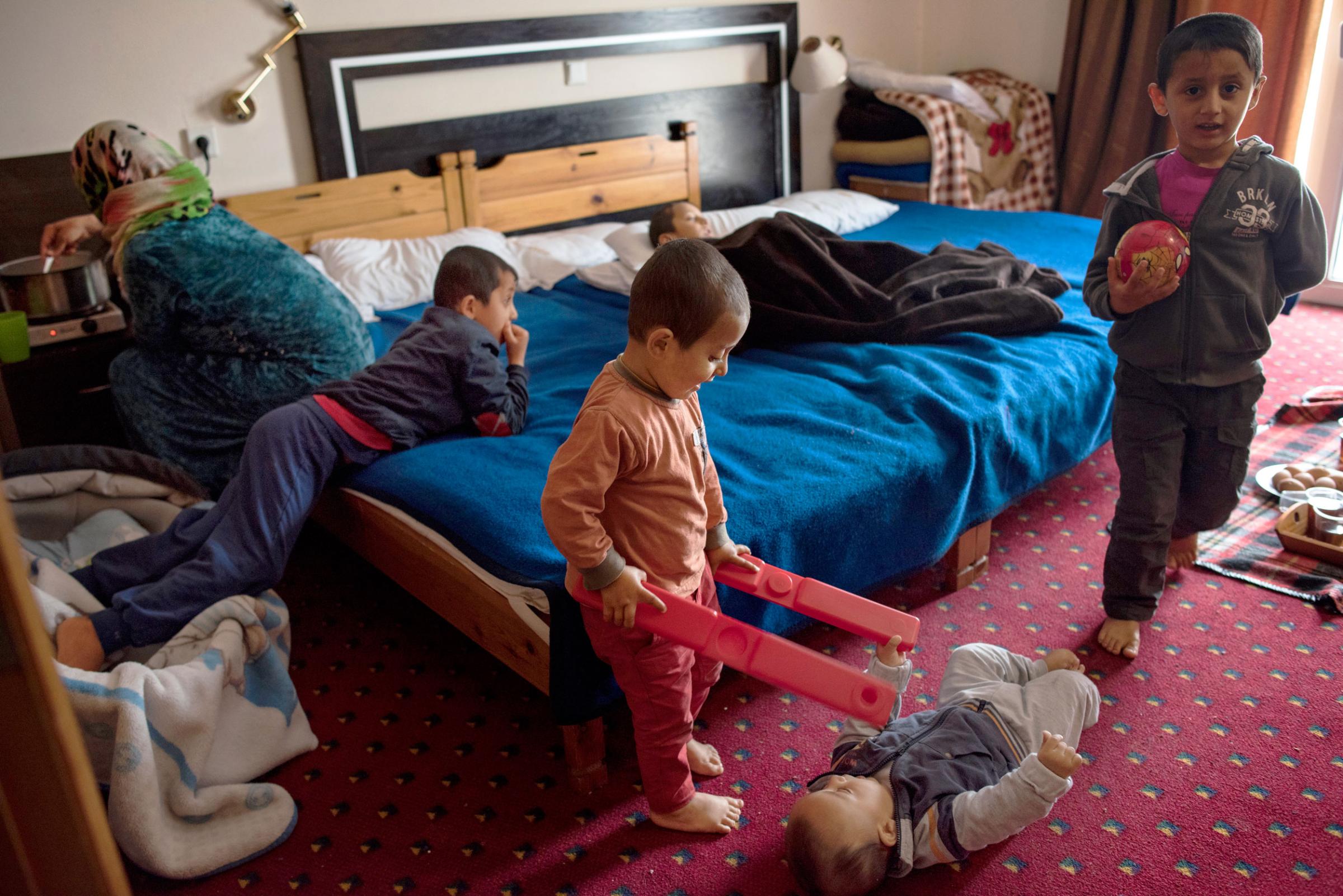
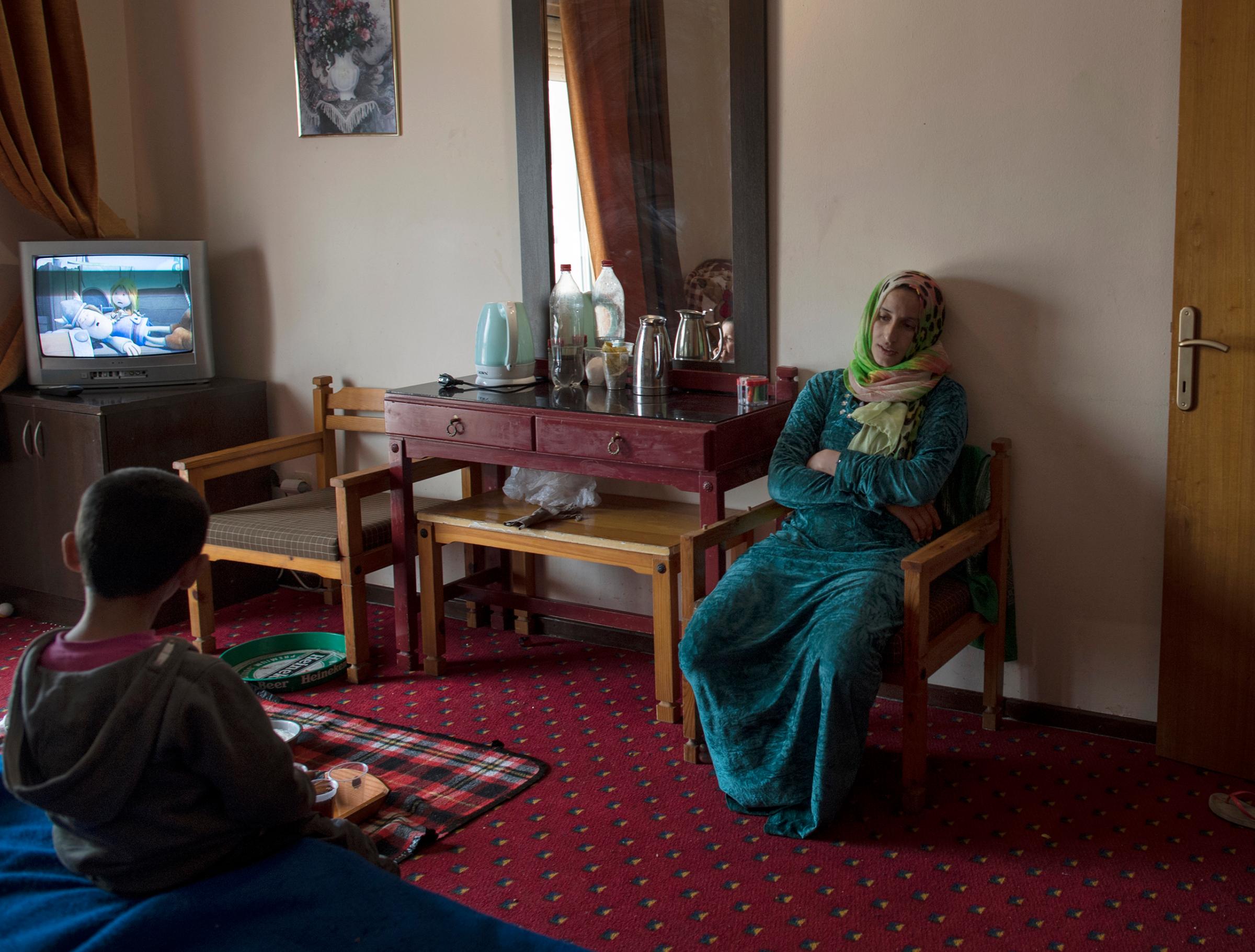
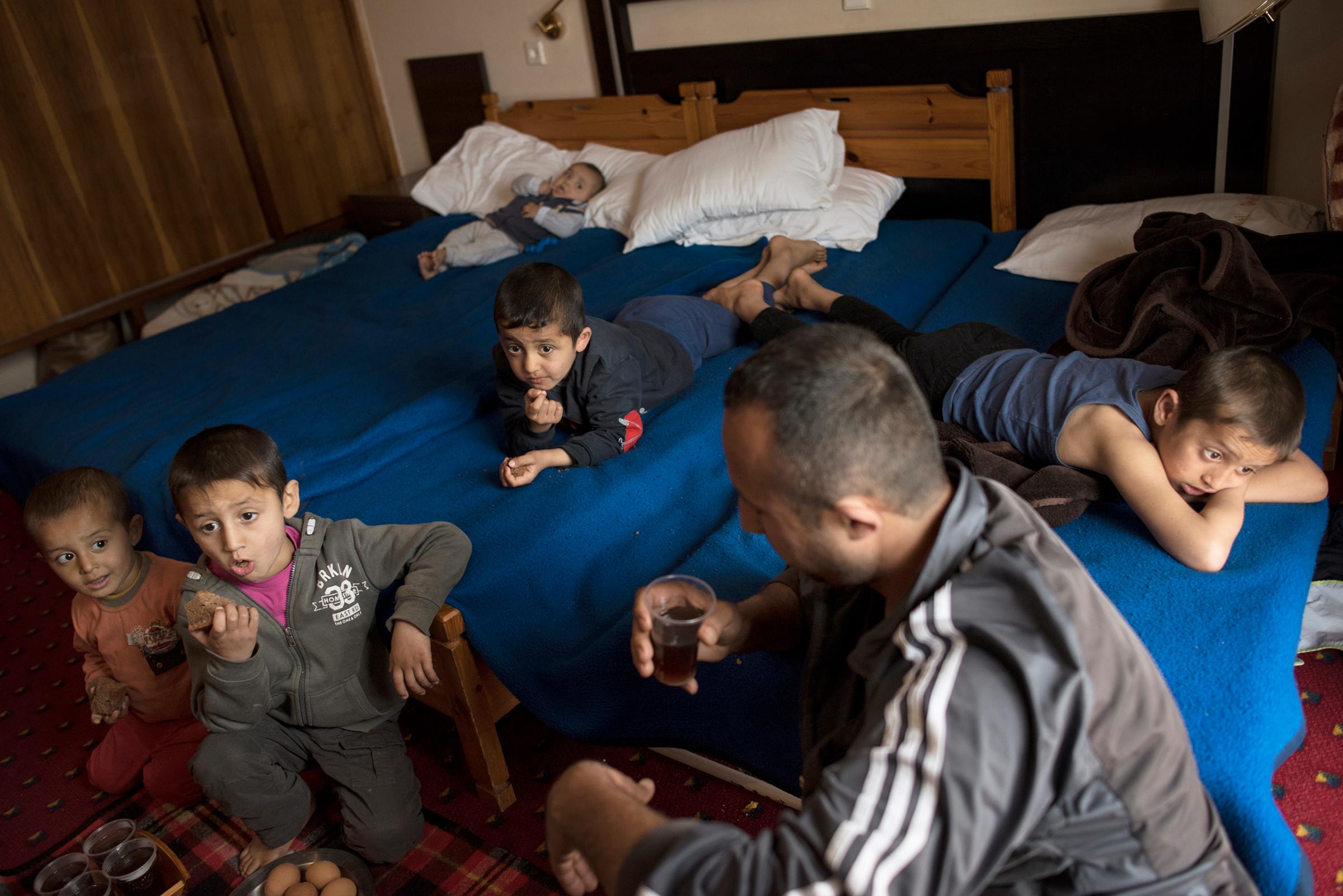
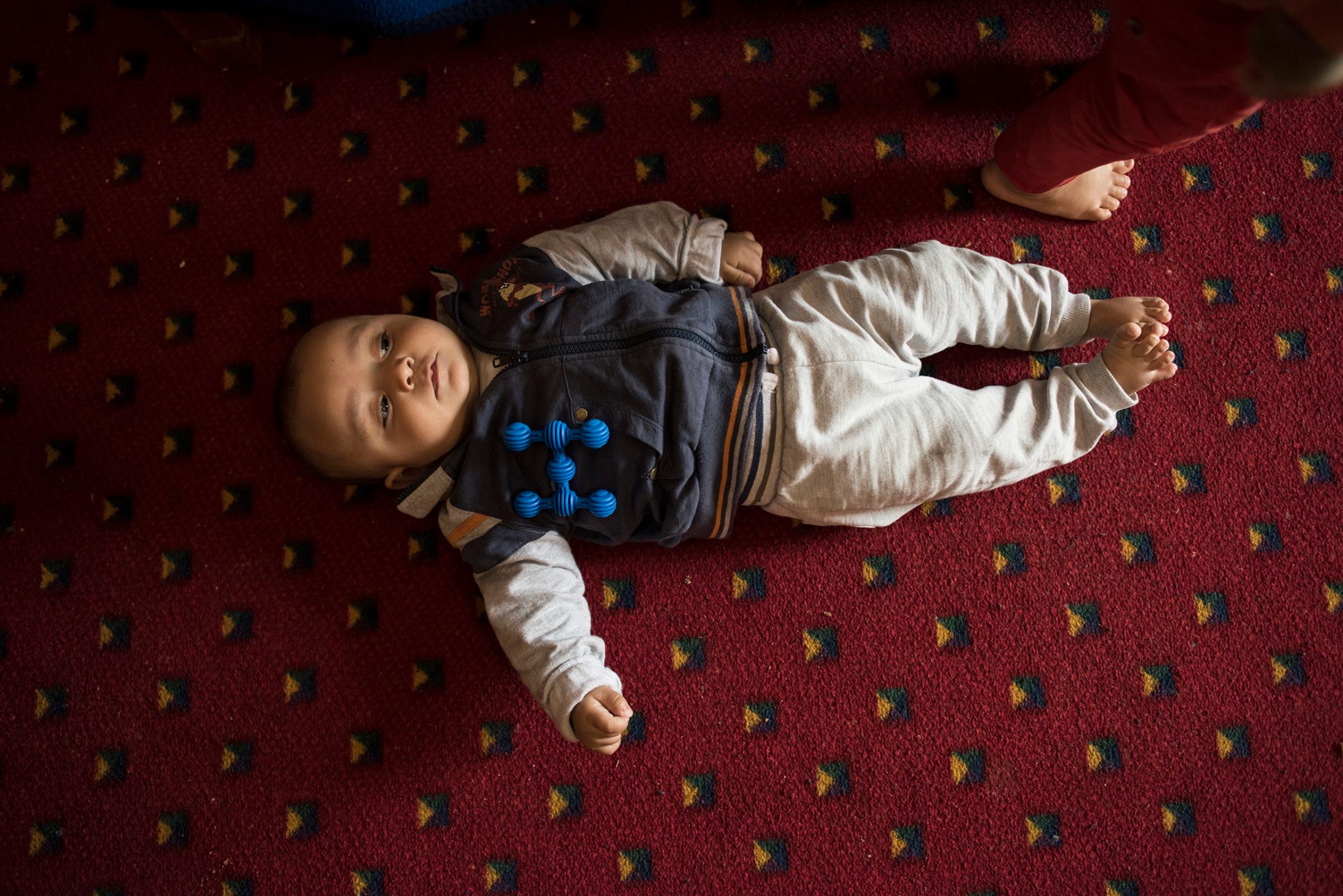
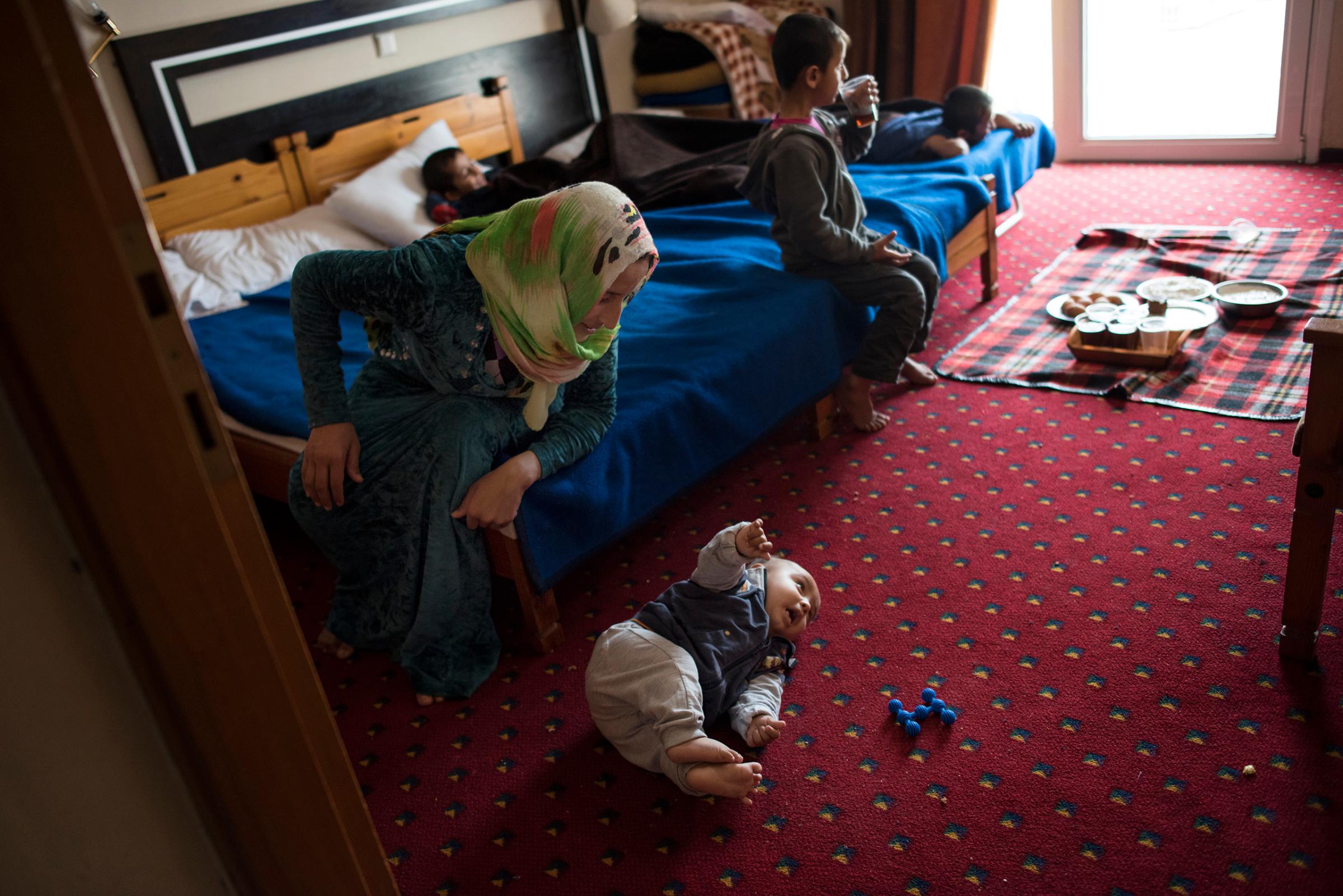
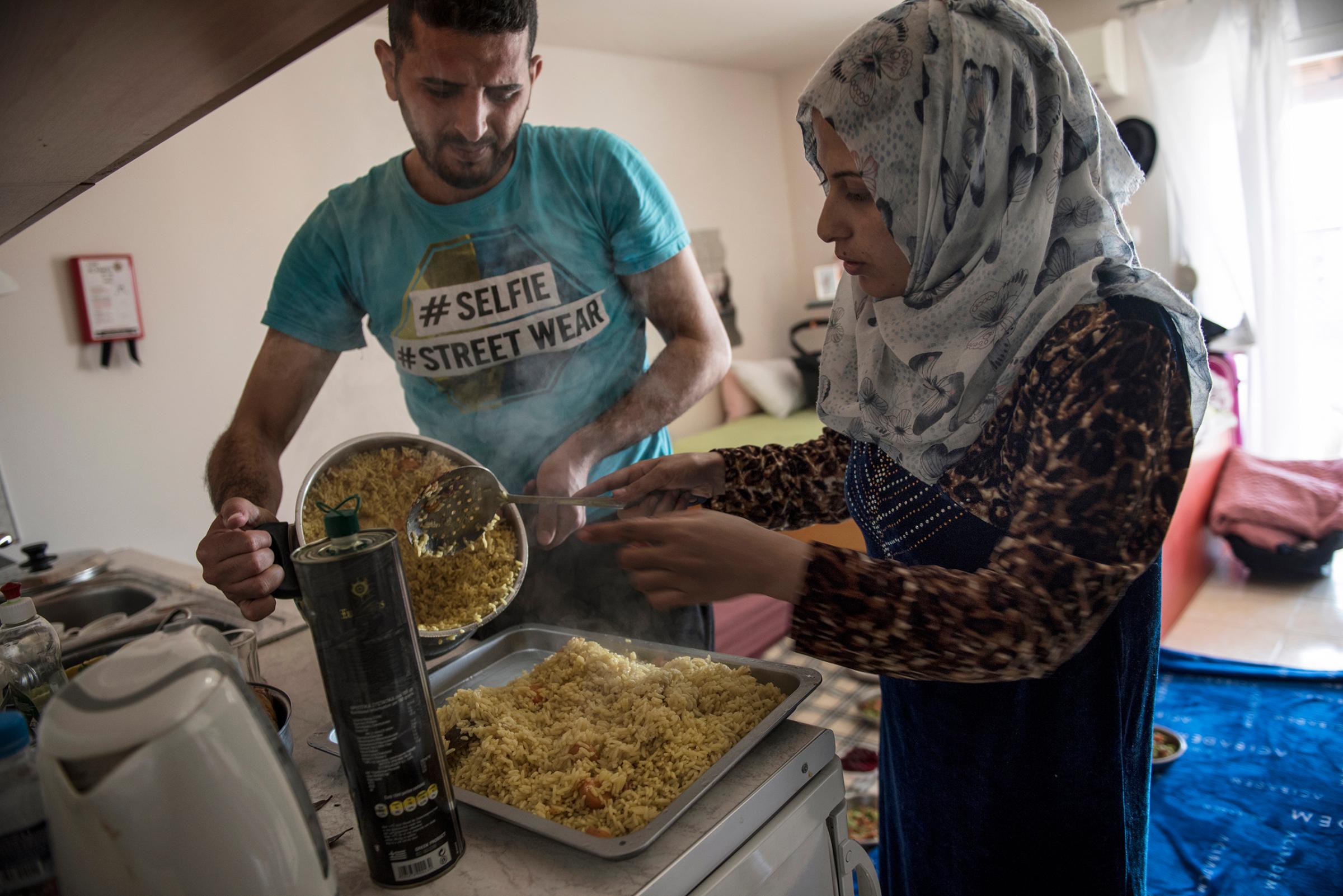
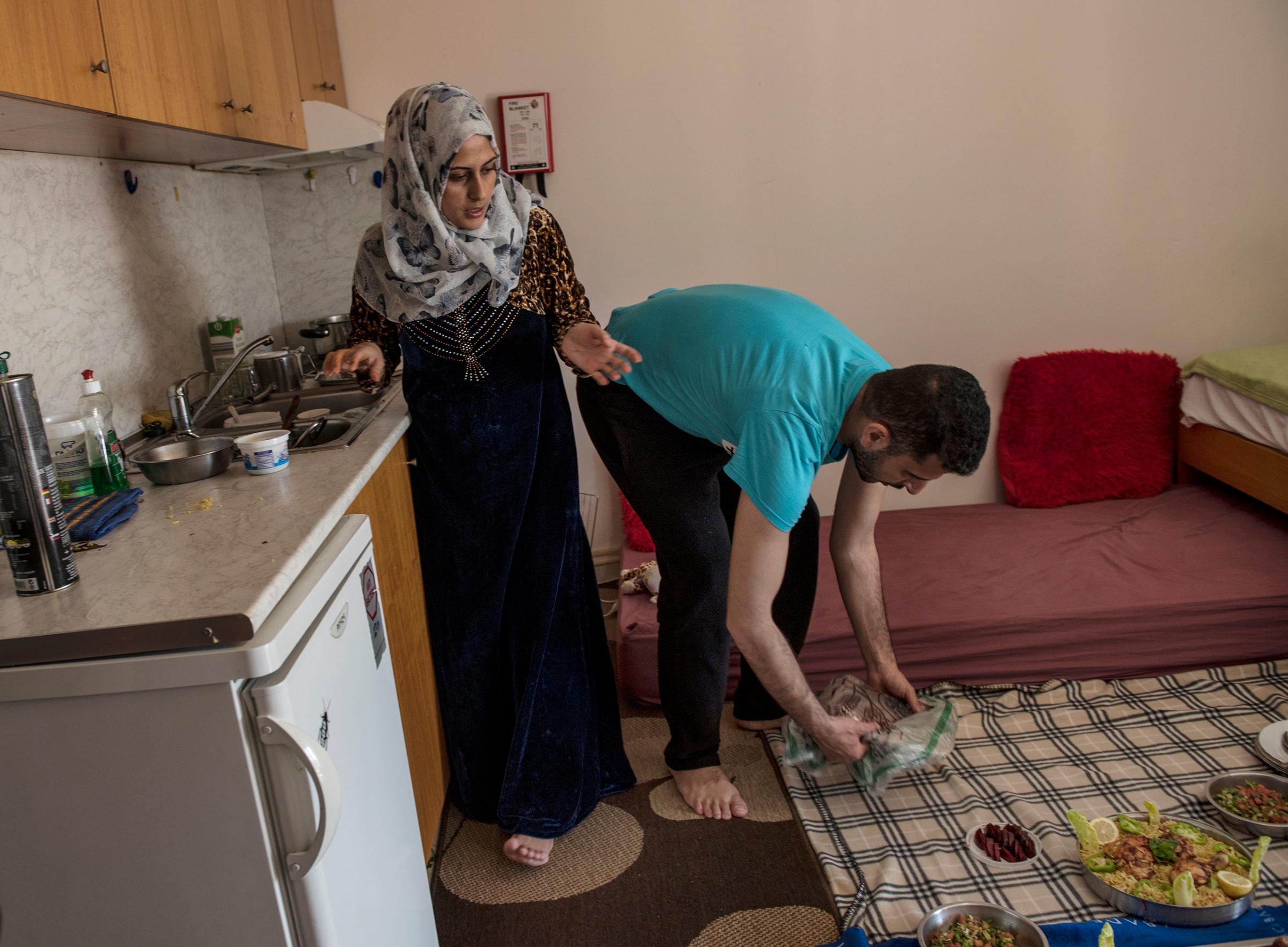
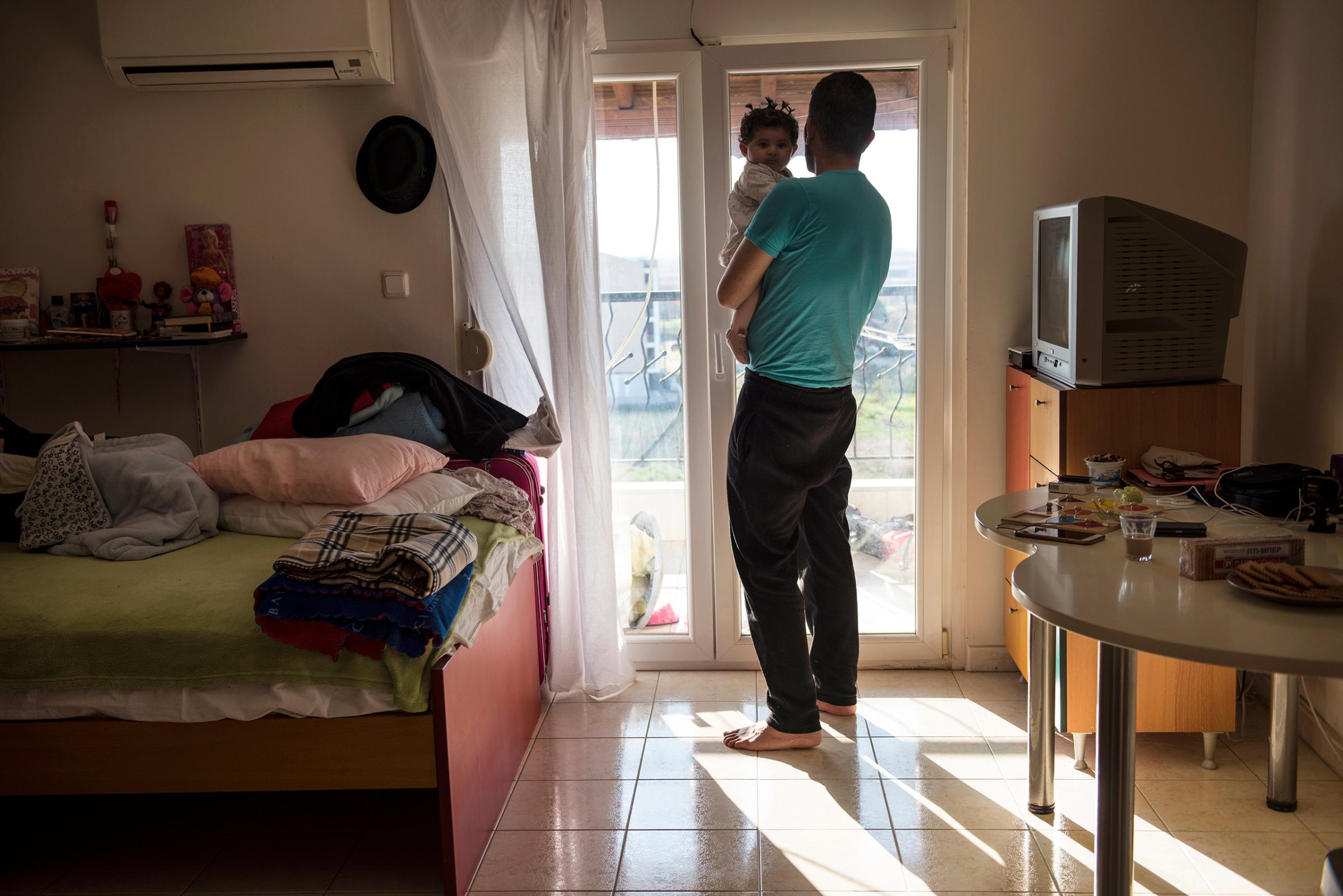
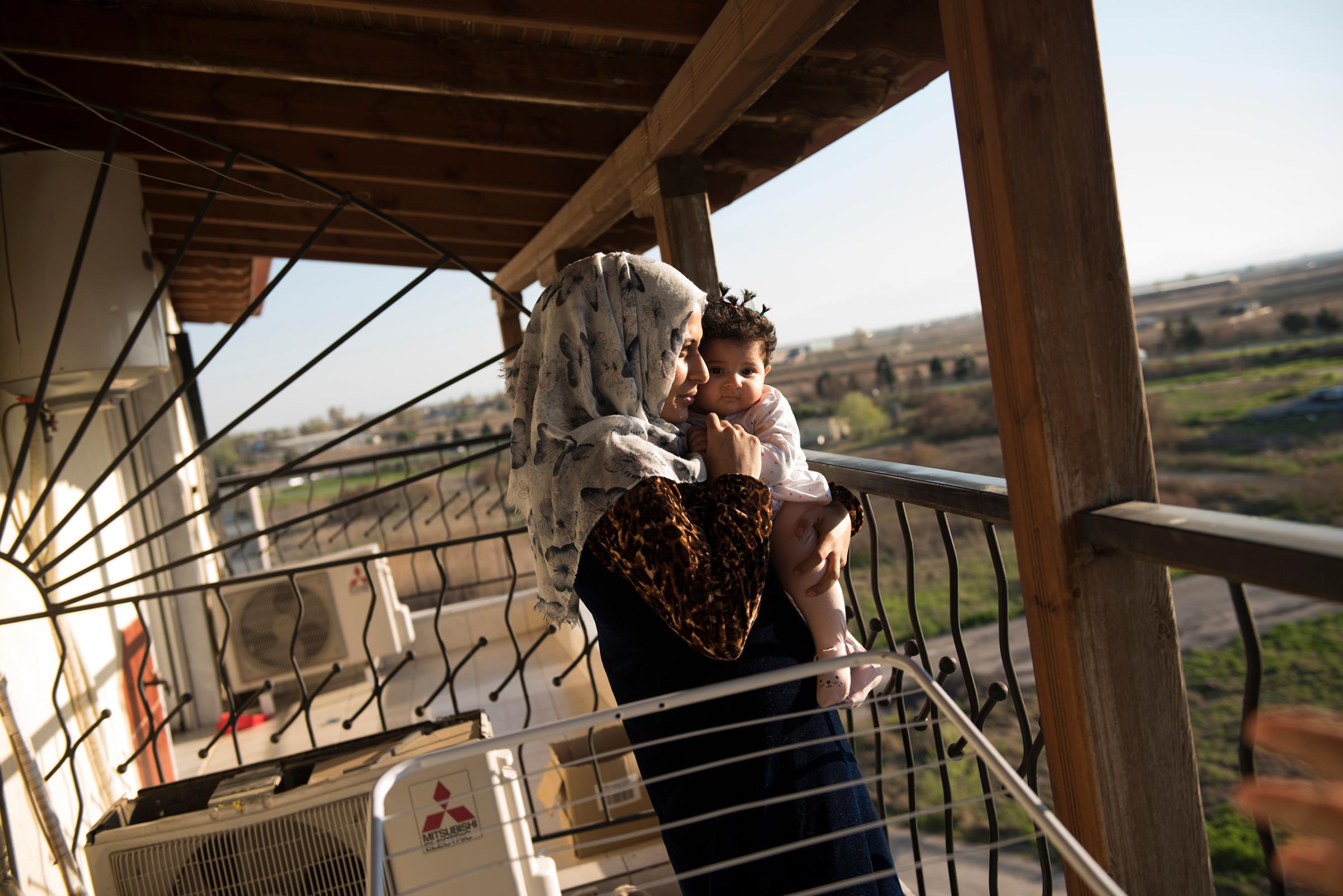
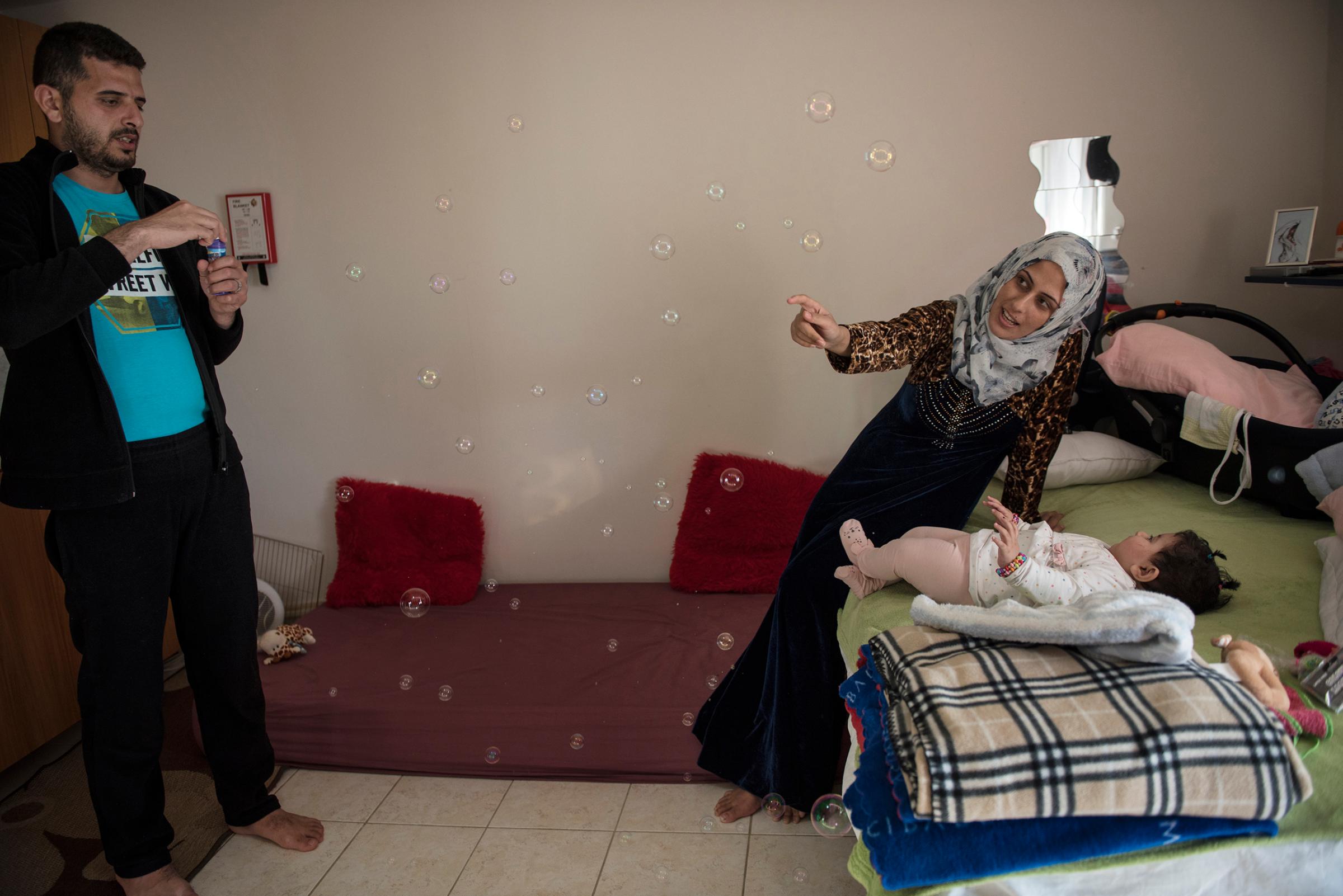
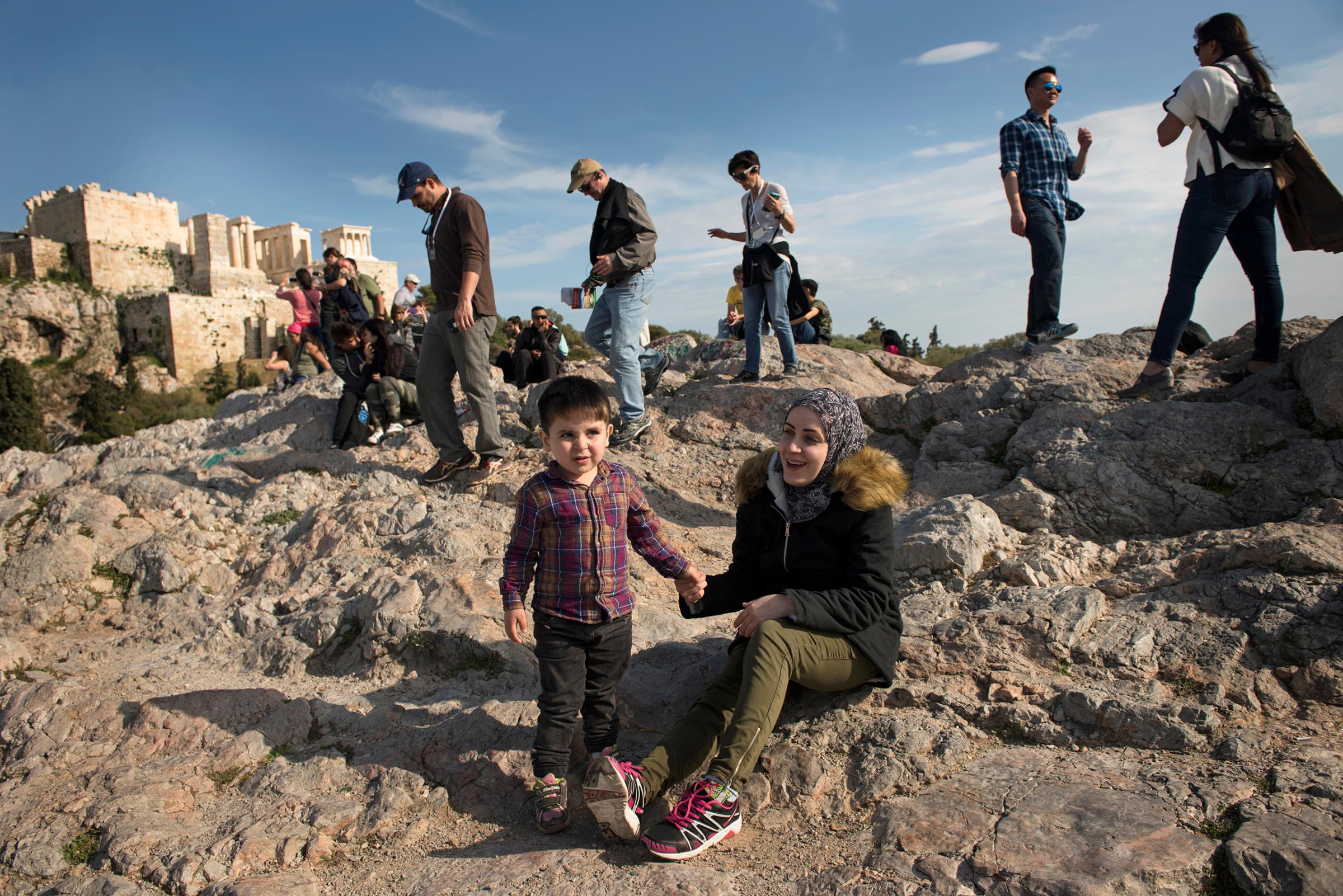
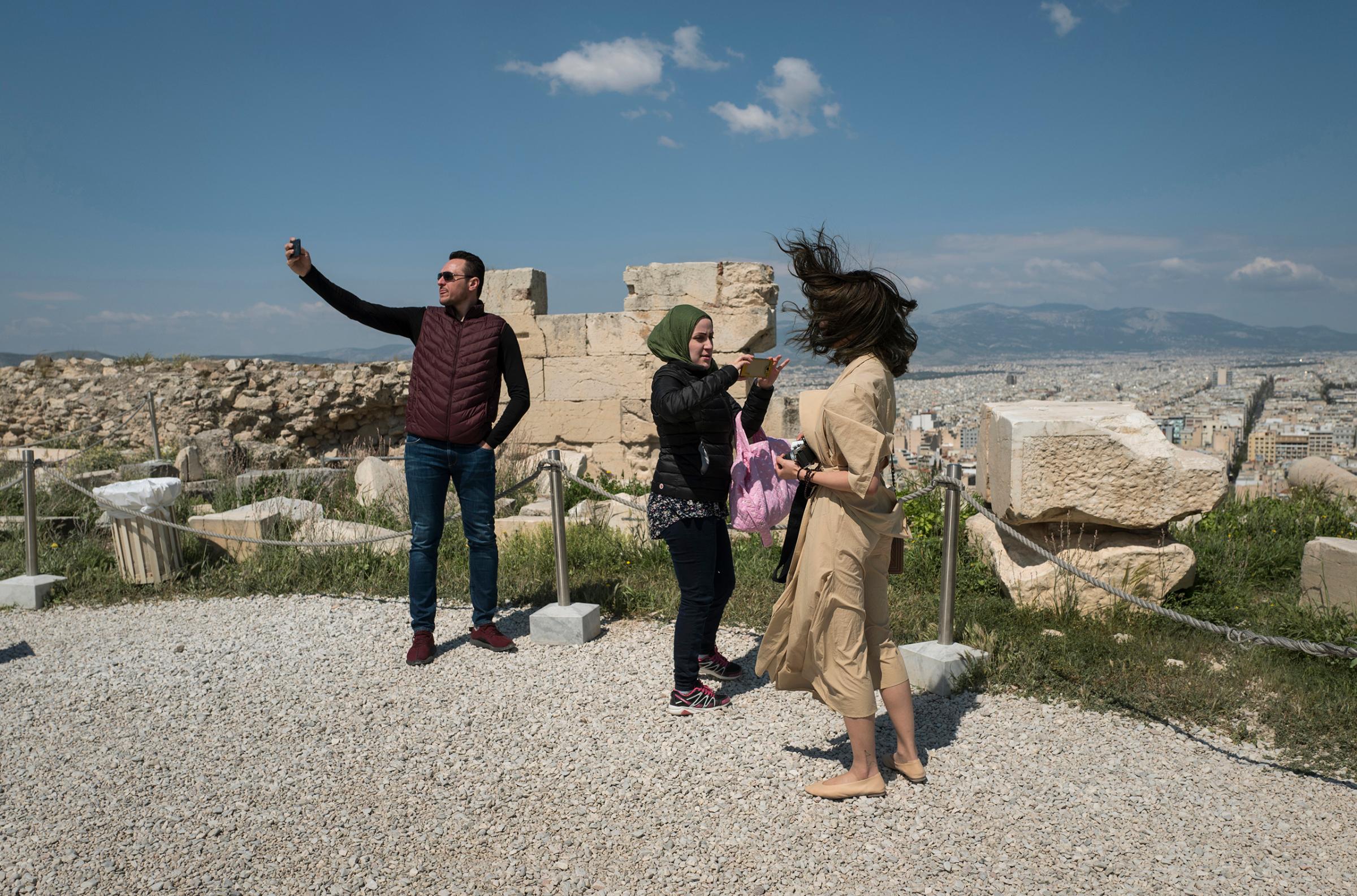
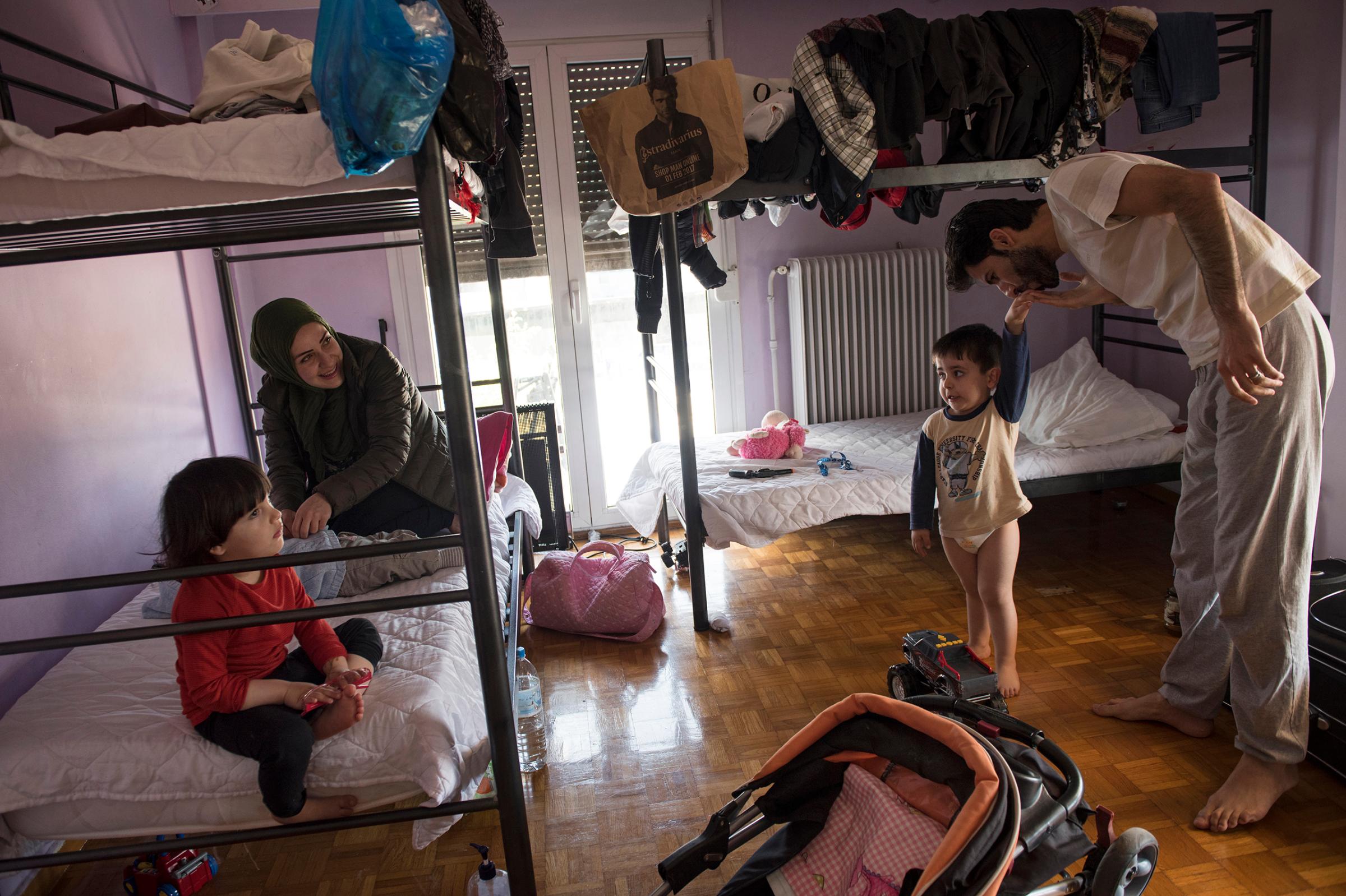
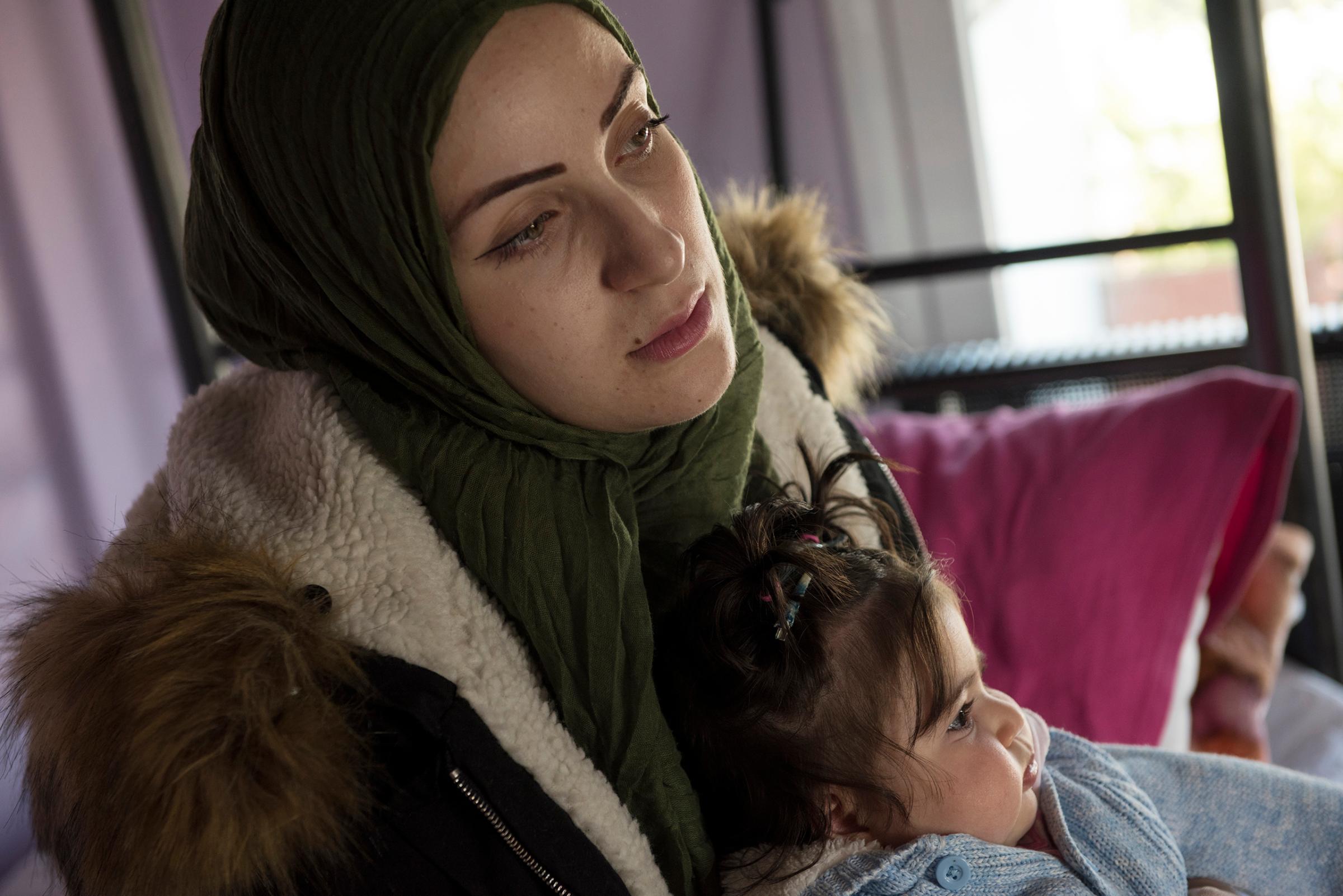
More Must-Reads from TIME
- Donald Trump Is TIME's 2024 Person of the Year
- Why We Chose Trump as Person of the Year
- Is Intermittent Fasting Good or Bad for You?
- The 100 Must-Read Books of 2024
- The 20 Best Christmas TV Episodes
- Column: If Optimism Feels Ridiculous Now, Try Hope
- The Future of Climate Action Is Trade Policy
- Merle Bombardieri Is Helping People Make the Baby Decision
Contact us at letters@time.com